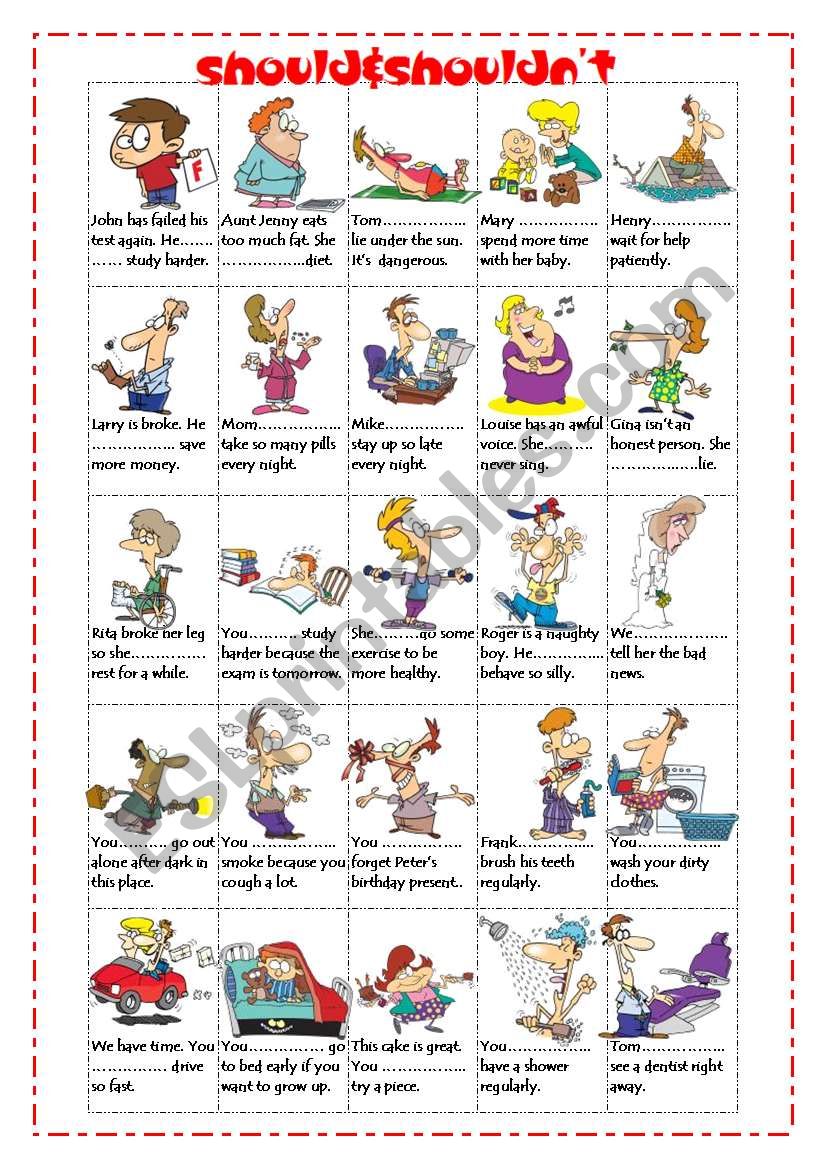
SHOULD&SHOULDN´T( for advice and suggestion) ESL worksheet by rose95
SHOULDN'T definition: 1. short form of should not: 2. short form of should not: 3. contraction of should not: . Learn more.
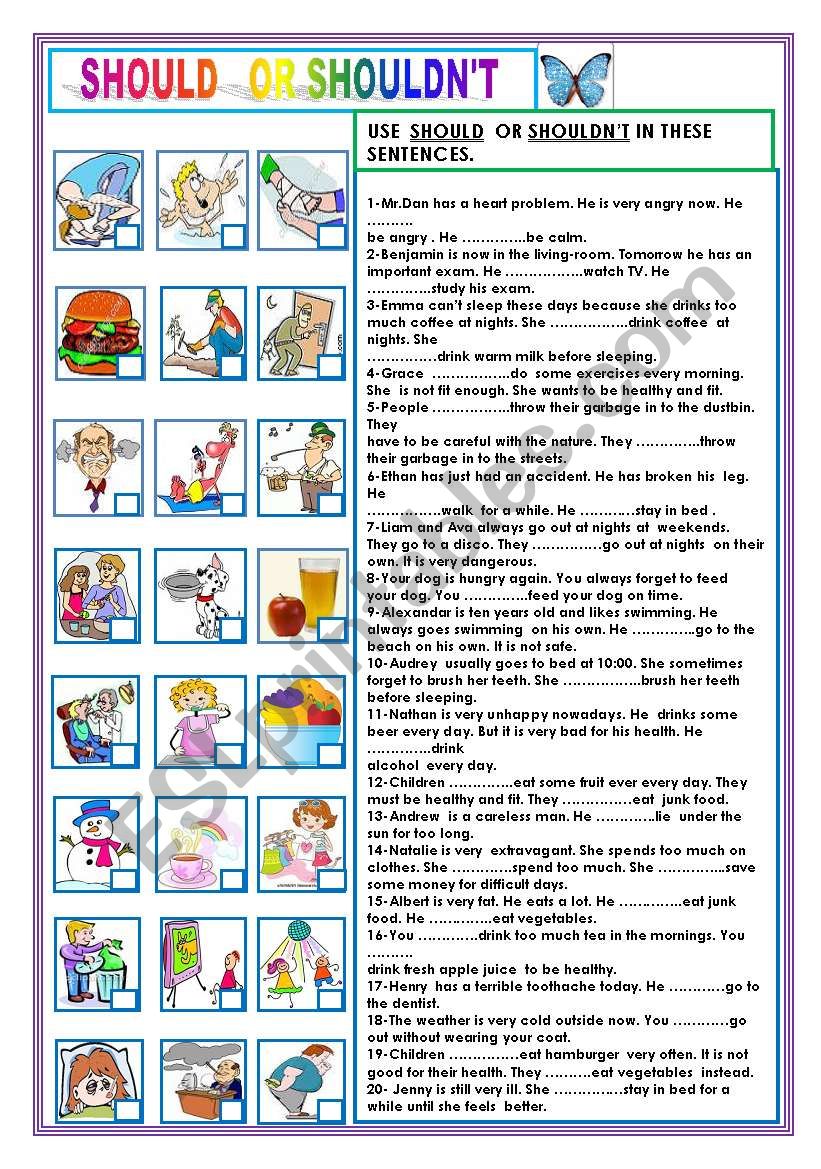
SHOULD OR SHOULDN´T ESL worksheet by nivida
1 Answer. Both questions are asking for a normative statement in response to somebody's belief. However, there is a difference in emphasis. As I said in an answer to the question "'should They?' or 'should they be?'?": These are actually both fine, but they have a different emphasis. They believe this.
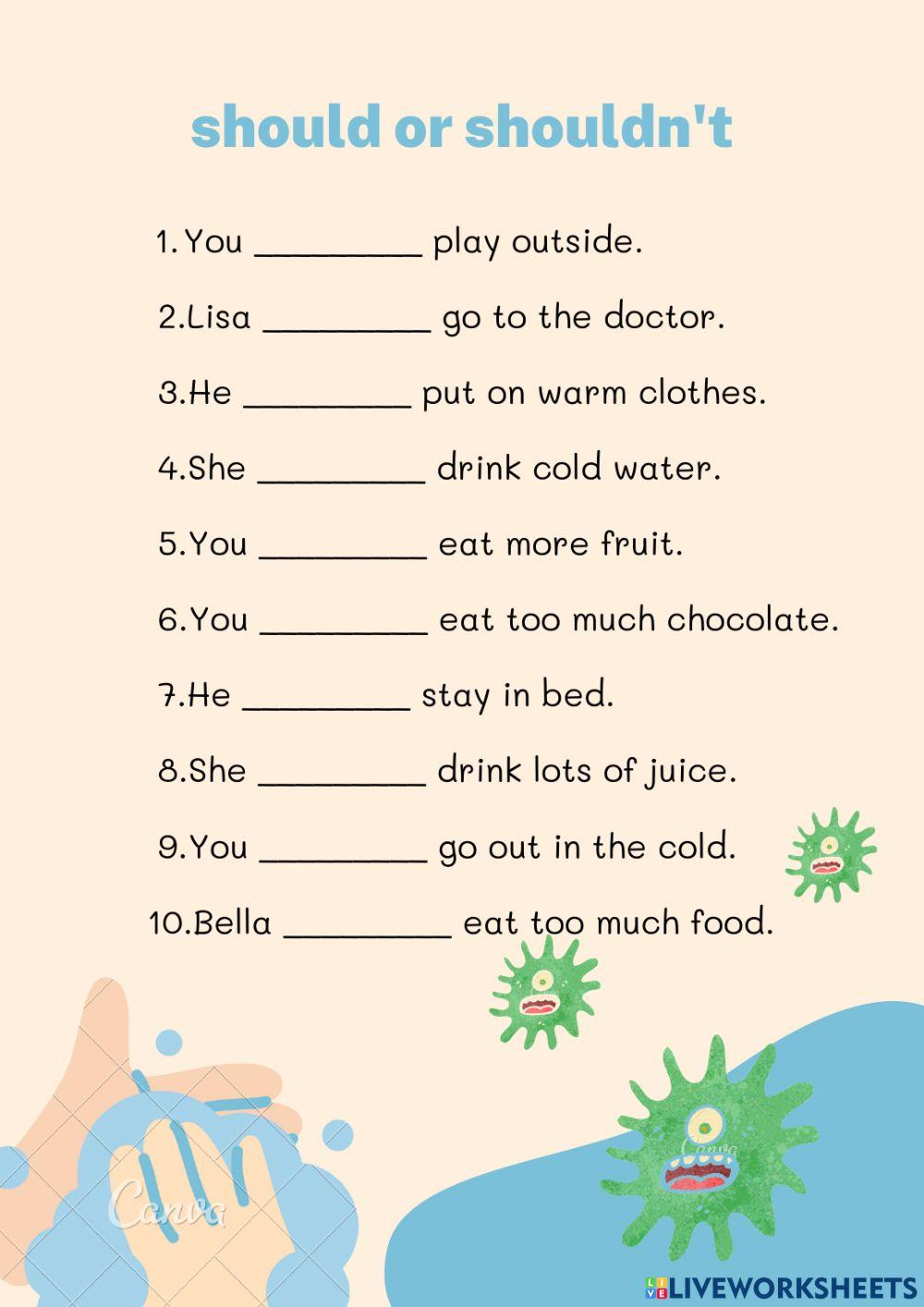
Shouldshouldn't online pdf worksheet Live Worksheets
Another use of should (also similar to ought to) is to indicate a kind of obligation, duty or correctness, often when criticizing another person: You should be wearing your seat belt. (obligation) I should be at work now. (duty) You shouldn't have said that to her. (correctness) He should have been more careful.

Should shouldn't worksheet 1st Grade Worksheets, Worksheets For Kids
Grammar Board Game Should. 36 squares, each asking for a different comparison (speak for at least 1 minute per roll) Print in b/w; or color for projectors or laminated prints. Pair work or small groups. Level: Elementary to Pre-Intermediate.

Pin on Ingl3102 Grammar and Writting Skills Unit 8
Modal Verbs: Should/Shouldn't. Modal verbs in English grammar express the ability, permission, obligation, possibility, etc. Modal verbs only have one form, meaning that they are used in simple present and don't have past simple and past participle forms. However, some modal verbs can have alternative forms which can be used in different tenses.
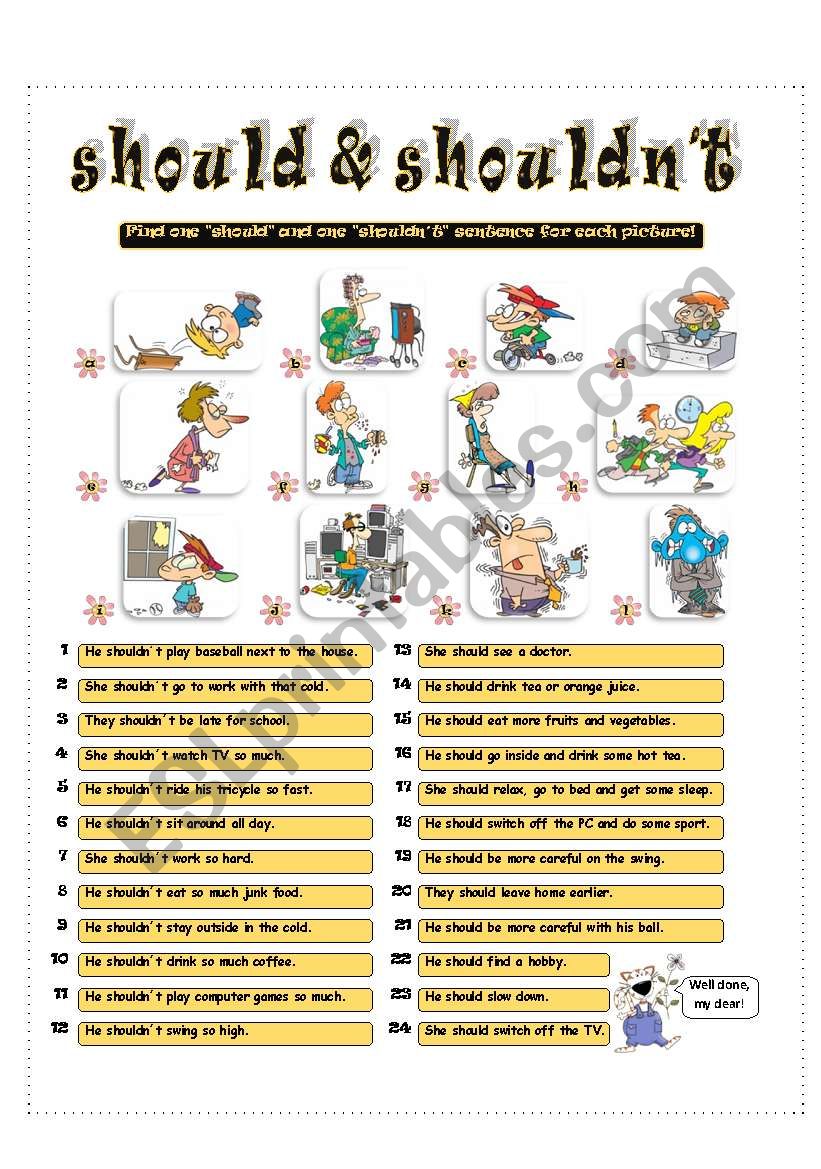
SHOULD & SHOULDN´T ESL worksheet by lisa.weix
This worksheet may be used as a test or writing or speaking exercises on health problems and solutions. 51185 uses. K1000O. HEALTH. SHOULD. SOME VOCABULARY AND GRAMMAR EXERCISES ABOUT THE HEALTH, ALSO THIS WORKSHOP INCLUDES USEFUL DEFINITION OF THE FIRST KIT AID STUFF. 43374 uses. rmartinandres. SHOULD - SHOULDN'T.
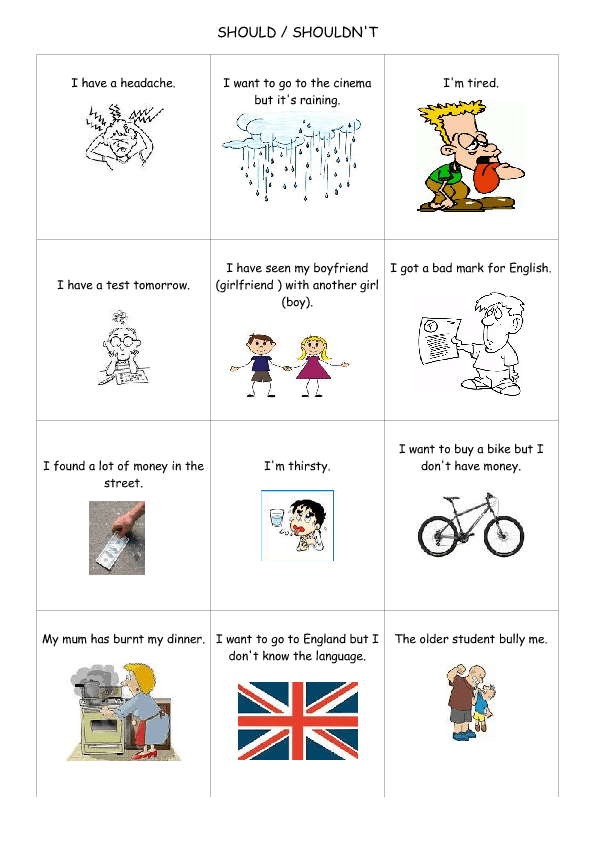
Should and Shouldn't
Level: beginner. Suggestions. We use should and shouldn't to make suggestions and give advice:. You should send an email. You shouldn't go by train.. We also use could to make positive suggestions:. We could meet at the weekend. You could eat out tonight.. Level: intermediate. We can use conditionals to give advice:. Dan will help you if you ask him.. Past tenses are more polite:

Should and shouldn't activity Activities, Language, Sentences
Should and shouldn't- modal verbs exercises. Elementary level esl.
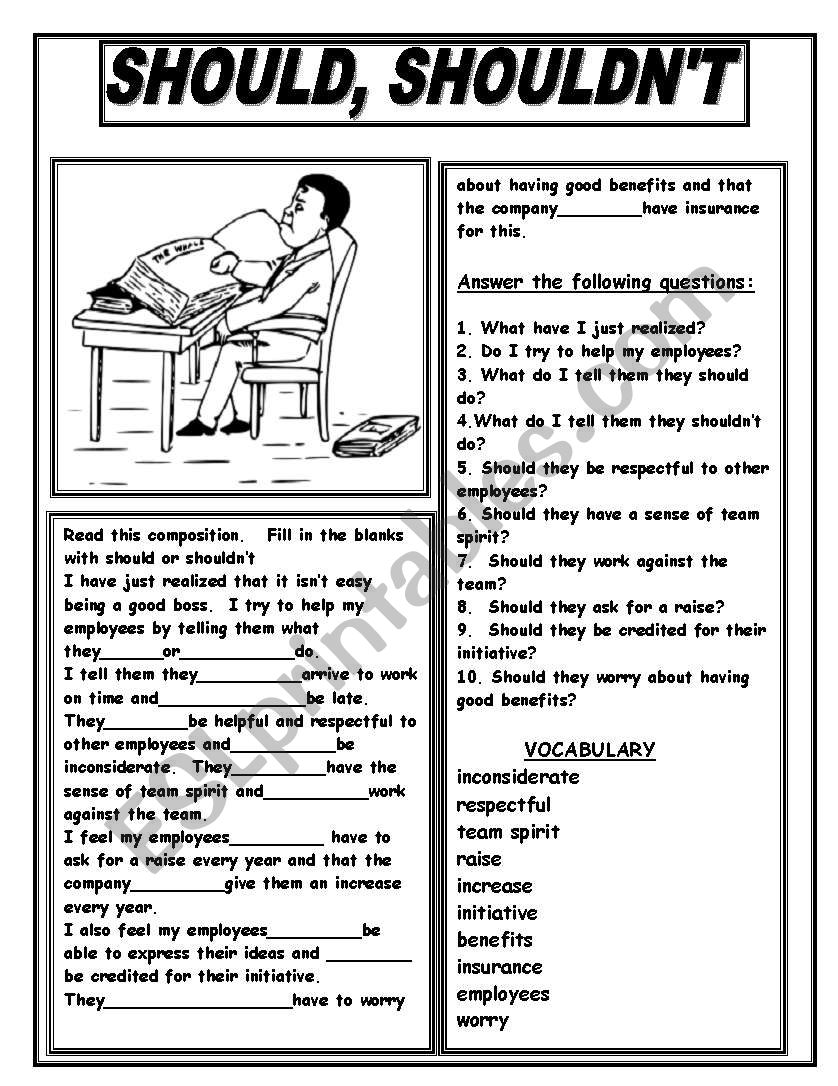
SHOULD, SHOULDN´T STORY ESL worksheet by GIOVANNI
Should, shouldn't. Modal verbs. A2. Pre-intermediate English grammar and exercises. We use the verb 'should', 'shouldn't' to give somebody advice.

Should shouldn't
Should is most commonly used for making suggestions and recommendations.. You should try the new Vietnamese restaurant!; We should leave now so we don't miss the bus.; You shouldn't wash white clothes with brightly colored clothes.; The city should fix these potholes!; In some cases, should can also express a duty or responsibility that isn't being fulfilled, especially when the.
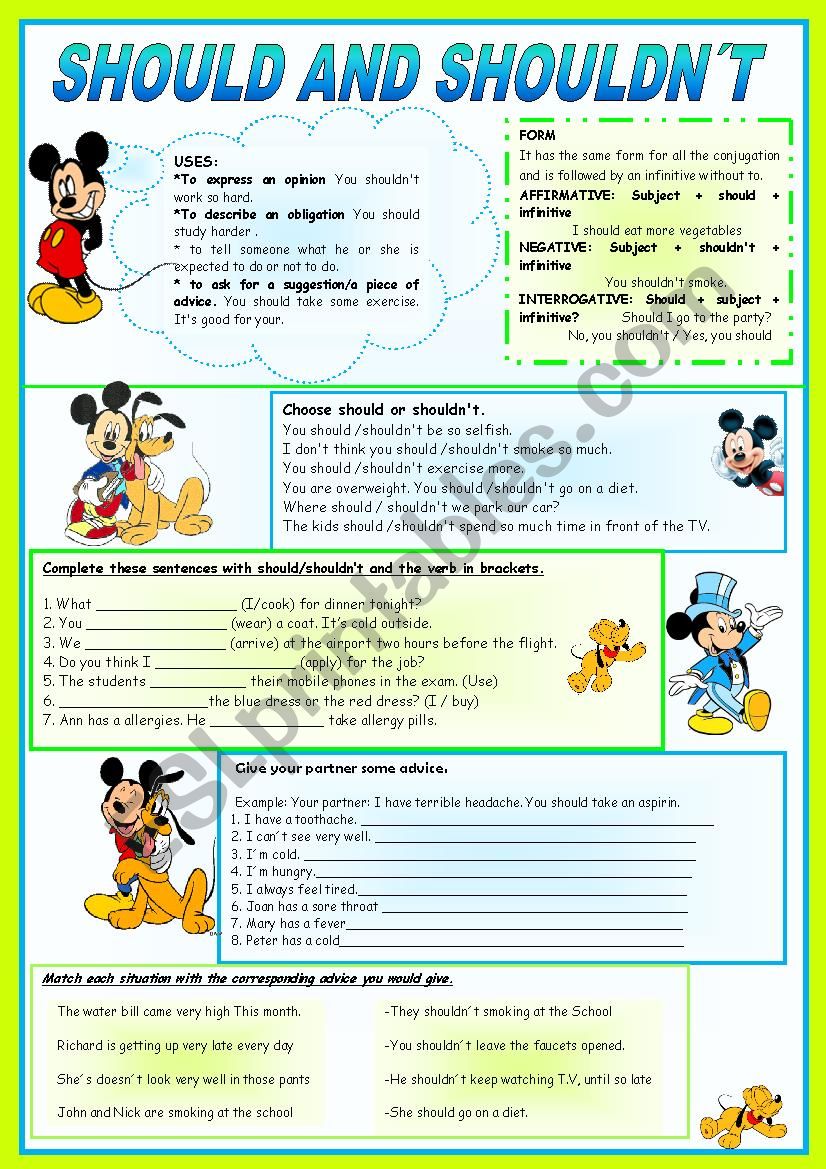
Should and Shouldn´t ESL worksheet by llkristianll
Enjoy English lessons! Music (in pop star part) by Krzysztof Pawczuk (http://krzysztofpawczuk.pl/)
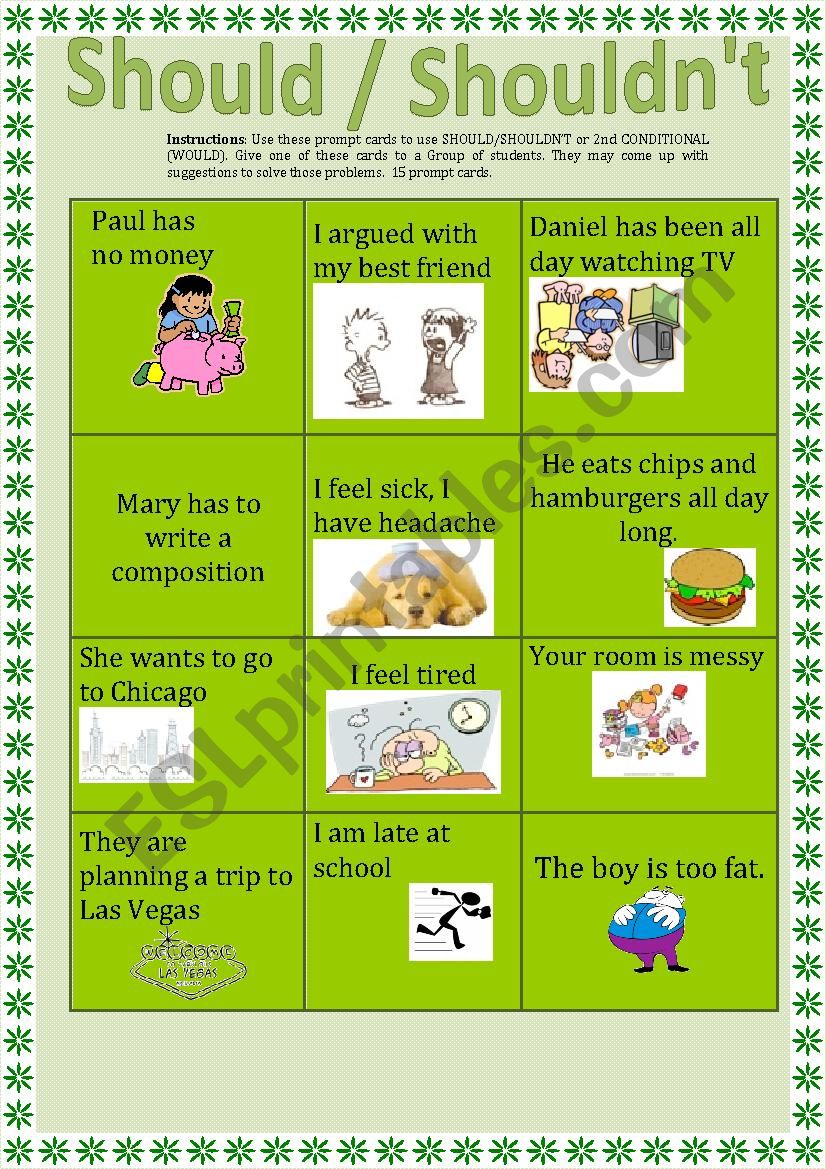
Should, shouldn´t (Problem cards) ESL worksheet by crovira
Students > Solutions > Elementary > Grammar > Unit 5 - Exercise 2 - should / shouldn't. Grammar; Everyday English Unit 5 - Exercise 2 - should.

Learning English Online should / shouldn’t (grammar)
The meaning of SHOULDN'T is should not.
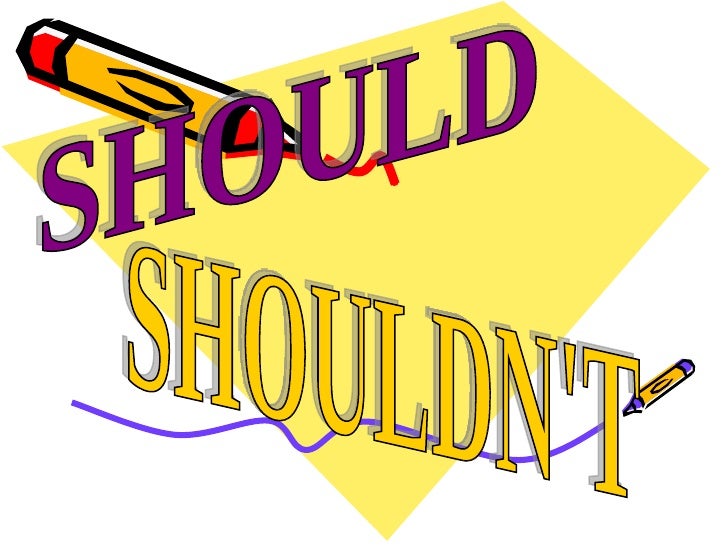
Should
Should & Shouldn't - Positives; Negatives; and Questions. Should - Positives, Negatives, and Questions. Should is a modal verb like can or must. Positives You should take it easy. She should go to bed early. We should go somewhere exciting for our holiday. Negatives You shouldn't get angry..
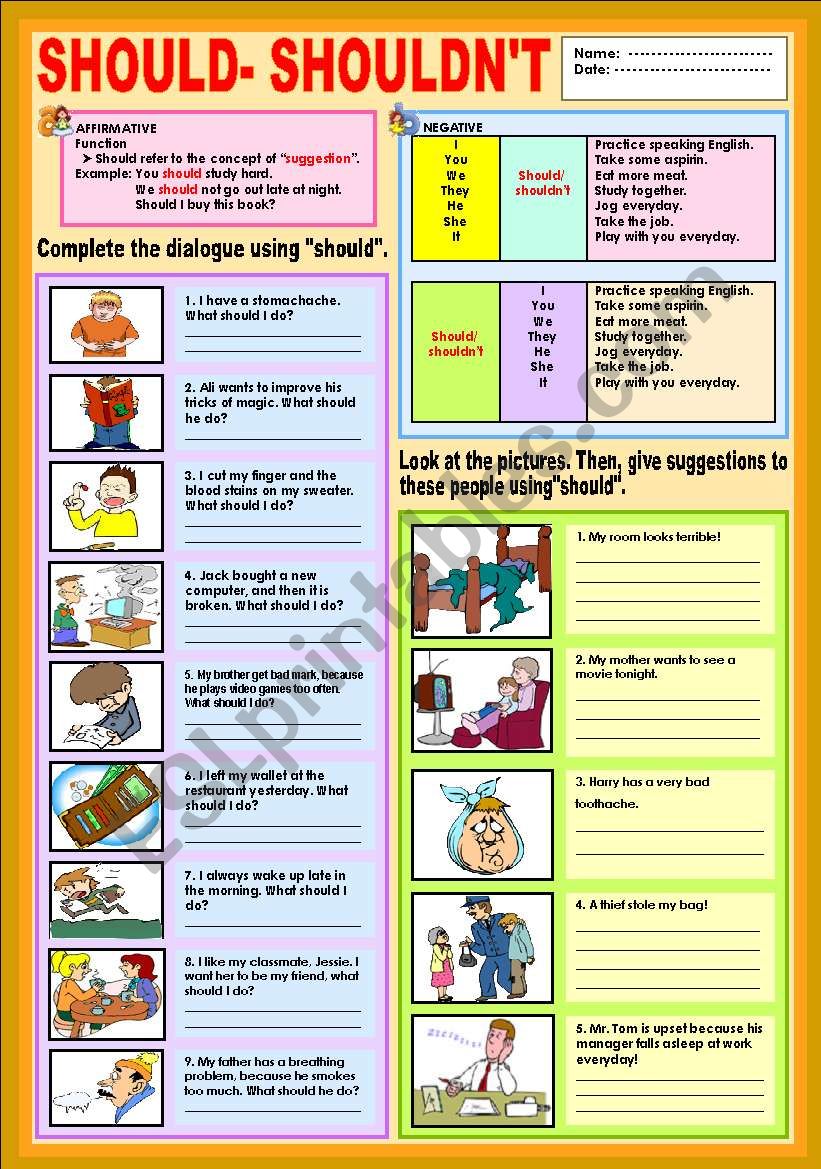
SHOULD SHOULDN´T ESL worksheet by Ayrin
Learn how to use SHOULD or SHOULDN'T to give advice, suggestions, opinions and recommendations in English. Should is a modal verb, and modal verbs are follow.
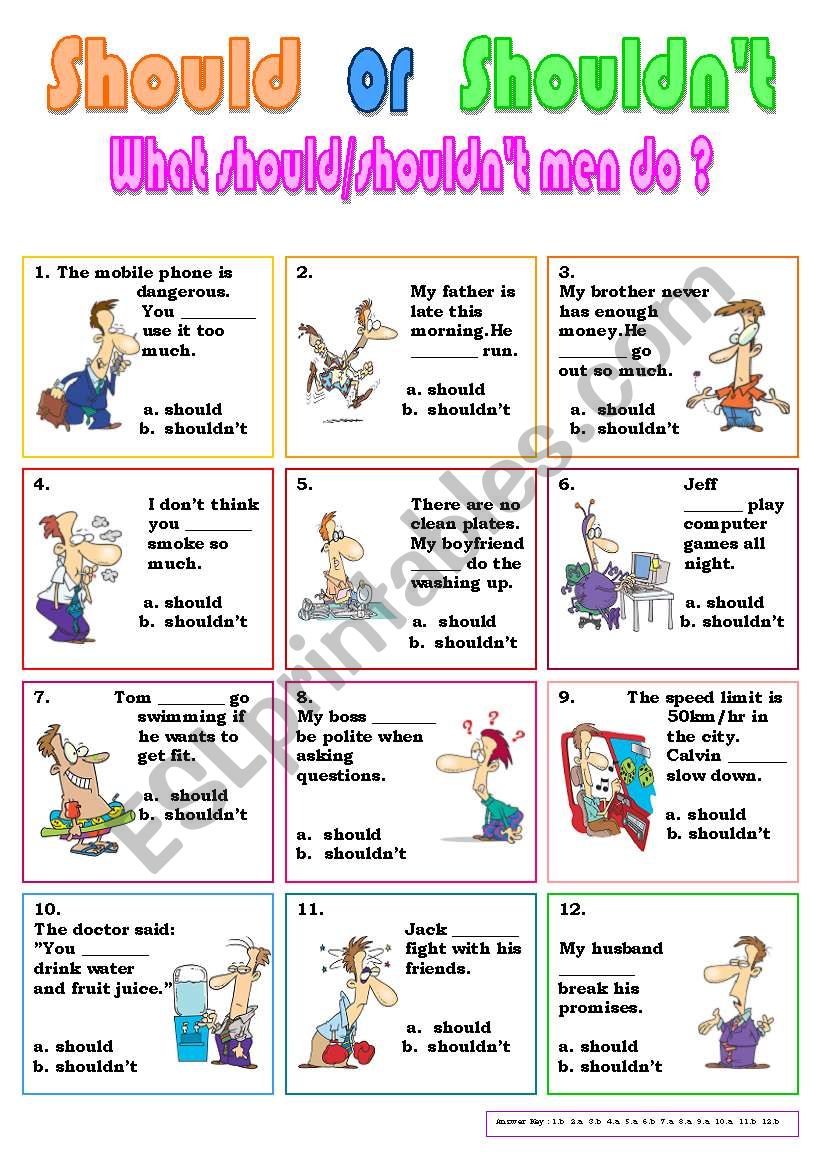
should or shouldn´t ESL worksheet by Ayfer Dal
Should comes first in the verb phrase (after the subject and before another verb): I should go home now. It should probably be sunny at that time of year. Not: It should may be sunny. or It may should be sunny.. The negative form of should is shouldn't. We don't use don't, doesn't, didn't with should: There shouldn't be many.